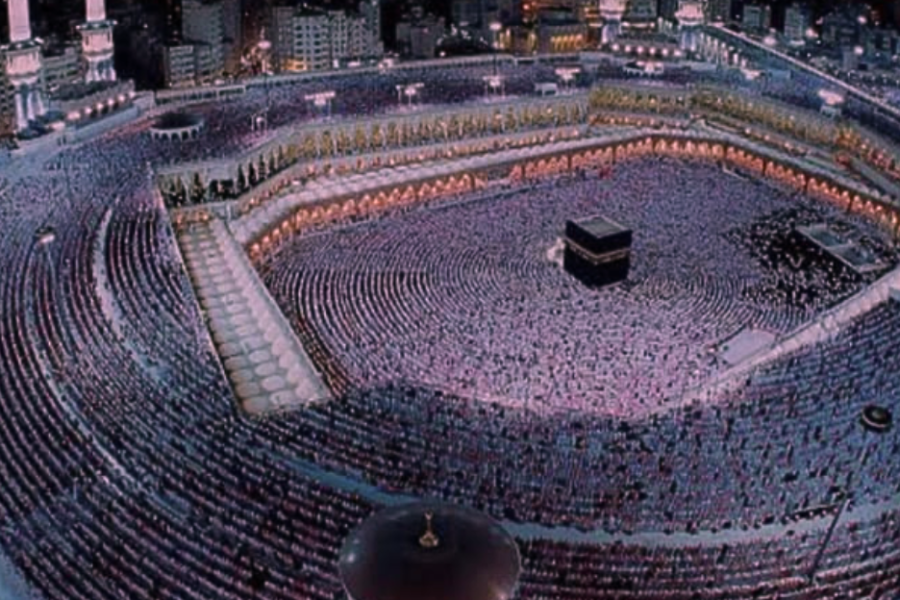
Fasting holds a unique place in Islam. It is more than just an abstention from food and drink; it is a sacred act that deepens our connection with Allah and refines our souls.
For many Muslim women, life’s demands—whether motherhood, work, or health challenges—can cause us to overlook the true beauty of fasting. Yet, the spiritual and physical rewards are immense, and it’s never too late to reignite our commitment to this divine practice.
These are valid reasons, but it’s crucial not to forget to make up for those missed days before the next Ramadan arrives.
The Importance of Fasting In Islam
Fasting during Ramadan is one of the Five Pillars of Islam, an obligation for every Muslim who has reached puberty and is physically able.
Allah says in the Quran:
"O you who have believed, decreed upon you is fasting as it was decreed upon those before you that you may become righteous."
(Surah Al-Baqarah 2:183)
This verse beautifully encapsulates the purpose of fasting: to attain taqwa (God-consciousness). It’s a period when we distance ourselves from worldly distractions and focus on our relationship with Allah. Yet, many of us, particularly women, often face challenges in observing or making up missed fasts due to menstrual cycles, pregnancy, or illness.
These are valid reasons, but it’s crucial not to forget to make up for those missed days before the next Ramadan arrives.
Making up Missed Fasts: a Forgotten Duty?
As Muslim women, we sometimes neglect the fasts we miss, whether due to menstruation, pregnancy, or illness. These missed fasts should not be overlooked but rather made up as soon as possible.
The Prophet Muhammad (PBUH) advised:
"Whoever breaks a fast during Ramadan without a valid excuse or illness, then even if he were to fast for a lifetime, it would not make up for it."
(Sunan Abu Dawood 2399)
This hadith reminds us of the importance of fasting and the weight of making up missed fasts. But for women, especially those with health concerns or who missed many fasts during pregnancy or breastfeeding, the task may seem overwhelming. Here’s where we can turn a challenge into an opportunity for growth.
Practical Tips for Making Up Missed Fasts
If you’ve missed fasts over the years, don’t be discouraged. Even if it seems like a huge number, break it down into manageable goals. Winter is an ideal time to catch up, as the shorter days make fasting more manageable. Prioritize your health, listen to your body, and take it slow.
Here are some steps to get started
- Create a Fasting Plan: Begin by estimating the number of fasts you’ve missed. If you can’t remember the exact number, make an educated guess. Then, create a schedule that allows you to slowly but steadily make up these fasts.
- Utilize Short Winter Days: Take advantage of the winter months when fasting is shorter and easier to manage.
- Stay Motivated: Remind yourself of the immense reward and spiritual benefits. Fasting is a way to strengthen your bond with Allah, and every fast brings you closer to Him.
- Fidya for the Elderly and Chronically Ill: For those who are unable to fast due to chronic illness or old age, Islam provides the option of paying fidya (compensation) by feeding a poor person for each missed day of fasting. This ensures that the reward of fasting is not lost.
As the Prophet (PBUH) said:
"Fasting is a shield with which a servant protects himself from the Fire."
(Sunan Ibn Majah 1639)
Nafl Fasts: Voluntary Acts of Devotion
In addition to obligatory fasts, there are Nafl (voluntary) fasts that carry great rewards and bring us even closer to Allah. These include:
- Six days of Shawwal: After Ramadan, fasting six days in Shawwal is highly recommended.
The Prophet (PBUH) said:
"Whoever fasts Ramadan, then follows it with six days of Shawwal, it is as if he fasted for a lifetime."
(Sahih Muslim 1164)
- Fasting on Mondays and Thursdays: These are days the Prophet (PBUH) would often fast.
He said,
“The deeds of the people are presented to Allah on Mondays and Thursdays, and I like that my deeds be presented while I am fasting.” (Sunan an-Nasa'i 2358)
- Fasting the Day of Arafah (9th of Dhul Hijjah):
Fasting on this day can expiate sins from the previous year and the coming year.
(Sahih Muslim 1162)
- The Day of Ashura (9th and 10th of Muharram):
Fasting on these days is a means of expiation for the sins of the previous year.
(Sahih Muslim 1162)
- Fasting on the White Days: Fasting during the three “white days” of each lunar month (the 13th, 14th, and 15th) is highly recommended. These days correspond to the full moon and are particularly beneficial for one’s spirituality.
The Prophet (PBUH) said:
"Fasting three days of every month is like fasting for a lifetime."
(Sahih Bukhari 1979)
These Nafl fasts are a way to seek forgiveness and mercy, while simultaneously enhancing our spirituality. While obligatory fasts are essential, these voluntary fasts allow us to draw closer to Allah and receive countless blessings.
Scientific Research on The Health Benefits of Fasting
Fasting is not just a spiritual detox—it has significant health benefits as well, and modern research is now catching up with what we’ve been practicing for centuries.
Studies show that fasting can:
- Improve metabolic health: By reducing insulin resistance and lowering blood sugar levels, fasting helps prevent type 2 diabetes.
- Support heart health: It helps reduce LDL cholesterol (the bad kind) and triglycerides, lowering the risk of heart disease.
- Boost brain function: Fasting has been linked to improved cognitive function and the promotion of nerve cell growth, which may help protect against Alzheimer’s and Parkinson’s diseases.
- Promote longevity: Fasting triggers autophagy, the body’s process of cleaning out damaged cells and regenerating new ones, which is believed to extend lifespan.
- Weight Loss: Fasting, especially intermittent fasting, has become popular in the West for its effectiveness in weight loss and fat burning. However, in Islam, our goal is not just physical wellness but spiritual purification as well.
Allah’s gift of fasting benefits us not only spiritually but also physically, offering a comprehensive approach to our well-being.
As mentioned in the Quran:
"And that you fast is better for you, if only you knew."
(Surah Al-Baqarah 2:184)
From that moment, I made it my mission to make up for those missed fasts, even if it would take years. Slowly but surely, I felt a deeper love for fasting, realizing it was a source of spiritual peace.
Fasting as a Journey of Spiritual Growth
My personal journey with fasting transformed during my second Umrah in Ramadan. Previously, I didn’t take fasting as seriously as I should. Minor excuses like exams or feeling slightly unwell kept me from completing Ramadan fasts.
But during that Umrah, something shifted. I promised myself that I wouldn’t miss a single fast again. Upon my return, I made a rough list of the fasts I had missed over the years, including entire months of pregnancy and breastfeeding.
From that moment, I made it my mission to make up for those missed fasts, even if it would take years. Slowly but surely, I felt a deeper love for fasting, realizing it was a source of spiritual peace. Fasting became not just an obligation but a heartfelt act of worship.
Reconnect With The Gift of Fasting
Sisters, let’s rediscover the beauty of fasting. Whether it’s catching up on missed fasts, committing to Nafl fasts, or simply approaching each fast with renewed intention, let’s make fasting a part of our lives that strengthens our connection with Allah.
If you’ve fallen behind, don’t worry—it’s never too late to start. Create your plan, begin small, and remain consistent. Allah’s mercy is vast, and with every step, we grow closer to Him.
The health benefits are an added bonus, a reflection of the perfection of our deen. Let’s hold this gift with gratitude and commitment, for both our spiritual and physical well-being.
"Indeed, the patient will be given their reward without account."
(Surah Az-Zumar 39:10)
Fasting is a blessing, a shield, and a source of immense reward. Let’s not take it for granted. Embrace it, cherish it, and reap its countless benefits—both in this life and the hereafter.
Ready To Start?
Take a moment to reflect on your fasting journey. Make a plan to catch up on any missed fasts, and commit to incorporating Nafl fasts into your routine. By doing so, you will not only honor your obligation but also grow closer to Allah, improving your spiritual and physical health.
May Allah accept our fasts, forgive our shortcomings, and make us steadfast in our worship.



